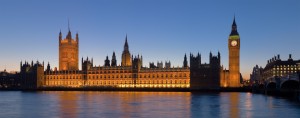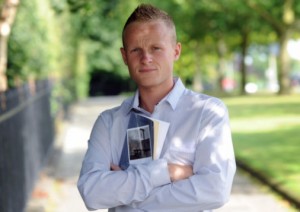Sophie Long is PhD candidate at the school of politics in Queens University Belfast, where she is reading International Studies and Philosophy. As part of her research in 2014 she submitted a paper-” An Investigation into Ulster Loyalism and the politics of Misrecognition”.

Unheard Voices: East Belfast’s ‘Undesirable’ Working Class
Sophie Long.
On 27th April, at the Strand Arts Centre, the local people of East Belfast gathered to discuss local politics, community needs and the necessary steps to improve the area,and the lives of its inhabitants. There was a panel, composed of representatives from the business community, education sector, local politics, labour and community activism, who gave their perspectives on what East Belfast, and its working class, needed, in order to prosper.
The impetus for organising the event was that, 2 weeks prior, the East Belfast Hustings, run by political bloggers Slugger O’Toole, had sold out quickly, leaving many local people disappointed, and unable to attend. Having attended the Hustings, I was surprised to see that the composition of the audience was markedly different from the general demographics of East Belfast, with 37.5% Unionists, 10% Nationalist and 52.5% Alliance/Green/Other. For an area which voted in a DUP candidate for some 30 years, before ousting them in favour of Alliance in 2011, this audience was fairly unrepresentative.
There was speculation across some social media pages that the hustings was in fact a ‘secret debate’, carefully co-ordinated to keep disgruntled loyalists out of the audience, but for the most part, people accepted that the event was open to all, and simply very popular. The 27th, then,was a grassroots response to the official hustings, with a serious, engaged discussion amongst the audience and panellists, and I feel that what was said deserves to be acknowledged.
Firstly, both Gavin Robinson and Naomi Long had been invited to attend the event. Both declined. The participants saw this as further proof that the ‘Protestant vote’ is taken for granted, and that the working classes had been cast aside, as political representatives assumed their tacit support. The discussions throughout the evening showed that such assumptions are out-of-date,and that the working class in East Belfast are critically examining how to advance the interests of their community, and re-orienting their allegiances accordingly.
One of the main issues highlighted by the audience was the much-discussed Unionist pact. For many,who had been canvassed by the UUP last year, and who had subsequentlyvoted for Sonia Copeland in the local elections of 2014, the pact was undemocratic, with the two unionist parties agreeing a deal over the heads of their voter base. Many people wanted the option to vote UUP, and to be deprived of this signalled the lack of respect which they felt politicians held for East Belfast and its people. Indeed, these attitudes should be lauded. A desire for choice is perfectly reasonable, and a dissatisfaction with the DUP as the default unionist choice, reveals the growing chasm between the Party and the unionist working class.
Secondly, the non-attendance of Long or Robinson was met with critique. One panel member pointed out that both candidates enjoy generous salaries, and live comfortably in the suburbs, having been granted their mandates by the electorate. Contrastingly, the working classes of East Belfast, it was said, who were living in houses which were badly affected by damp, in an area with high unemployment, which would soon be subject to Welfare Reform. The audience were aware that they lived very different lives to those politicians who expected their votes.
These votes, it seems, won’t be willingly given to the DUP. Several participants noted that loyalists were often “told who to vote for”, and subject to the fear-mongering of the DUP, which provoked a tactical vote, “to keep someone else out”. One member pointed out that the DUP had traded constituencies with the UUP, with the former winning East Belfast, and the latter putting Tom Elliott forward in Fermanagh and South Tyrone. This casual trade-off suited the Parties, who adopted a pragmatic approach to the Westminster elections. But what it also did was further alienate an already disenchanted working class electorate, who felt they deserved a choice between Unionist candidates.
This is an important point, and one should be emphasised. The audience present on the 27th were not apathetic. Nor were they pledging uncritical allegiance to Unionism itself. In fact, the Union, or the constitutional position, was not mentioned once. What was mentioned was can be grouped into two categories; material, and non-material resources. Firstly, the material: education, in terms of pre-school places, local primary schools, and the problems of academic selection. Many parents were worried about their children being placed in nursery schools outside of the local area. In addition, the desire for more social housing, instead of ‘pocket parks’,was raised. It was clear that these residents were ‘experts’ in what their communities needed, and wanted someone to listen to those needs.
Representatives from East Belfast Football Club pointed out the benefits of sport for young people, and stated that funding was often difficult to come by. A young person in the audience said that he played football, but would like “something to do” the other 5 nights of the week. A local trading chairman explained that the unused commercial properties on the Newtownards Road could be run as a pilot scheme, where young people could set up their own small enterprises, and enjoy zero rates, and reduced rents, for a year, in order to regenerate the area. He added that the Department for Enterprise, Trade and Investment had thus far refused to implement such a project. His analysis was that the visible degeneration of the Newtownards Road area was a symbol of the low regard in which East Belfast was held.
In terms of non-material resources, the discussion turned to issues of community solidarity, respect, and political accountability. The recent attacks on a local Polish resident’s nail salon were raised. Members of the panel and audience pointed out the strong community response to the attack, with one adding, “rightly so, everyone should be able to live in peace”. What was then highlighted, and which I believe is something we all need to consider, were the vastly different responses which follow the regular sectarian incidents in Cluan Place, a small, loyalist enclave beside Short Strand. A local resident stated that hate crimes were wrong, whether racially motivated, or sectarian in their intent. Where, she asked,were the vigils, rallied and protests, for residents of Cluan Place? None of these conversations were remotely racist, as discussions over resources are often framed as being, but instead were the articulations of a people who feel utterly left behind. There were no ‘zero-sum’ attitudes on display, instead a desire for the ‘unheard’ to be acknowledged.
This leads me to my main point, which is that, loyalists, or the Protestant working class, have become the ‘undesirable’ component of the new Northern Ireland. The word ‘undesirable’ was chosen by a panel member, and echoed by the audience. This, to me, shows an awareness, within loyalism, that their community is seen as backward, sectarian and unthinking. Not just that, but the assumption, I would argue, from Northern Ireland’s ‘liberal class’ is that loyalists will give unquestioning support to political unionism, such is their distaste for Irish nationalism. Not only is this disrespectful, it is simply untrue.
Loyalism, as represented by the audience on the 27th April, and by parties such as the PUP, is a form of critical unionism. They want politicians who will listen to their needs. They want a school system which will allow their children to flourish. They want to live in an area with real shops, not ghostly, insulting facades of the shops which once were. They want to be consulted on those political agreements which affect their democratic choices. These things, are not backward. They are not sectarian. They are not unthinking. Neither is loyalism, and it is time the ‘liberal classes’ and political left, examined their own prejudices and began to engage with the grievances of the Protestant working class.
Sophie Long
















